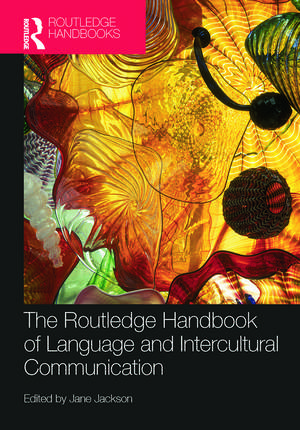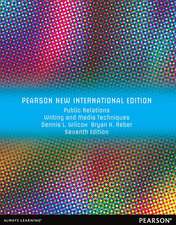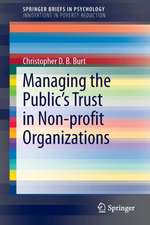The Routledge Handbook of Language and Intercultural Communication: Routledge Handbooks in Applied Linguistics
Editat de Jane Jacksonen Limba Engleză Paperback – 29 aug 2013
The Routledge Handbook of Language and Intercultural Communication is the ideal resource for advanced undergraduates and postgraduate students of applied linguistics, TESOL/TEFL and communication studies.
| Toate formatele și edițiile | Preț | Express |
|---|---|---|
| Paperback (2) | 371.25 lei 3-5 săpt. | +48.46 lei 10-14 zile |
| Taylor & Francis – 31 mai 2023 | 371.25 lei 3-5 săpt. | +48.46 lei 10-14 zile |
| Taylor & Francis – 29 aug 2013 | 526.79 lei 6-8 săpt. | |
| Hardback (1) | 1577.08 lei 6-8 săpt. | |
| Taylor & Francis – 14 mai 2020 | 1577.08 lei 6-8 săpt. |
Din seria Routledge Handbooks in Applied Linguistics
-
 Preț: 347.15 lei
Preț: 347.15 lei -
 Preț: 348.27 lei
Preț: 348.27 lei -
 Preț: 382.54 lei
Preț: 382.54 lei -
 Preț: 347.26 lei
Preț: 347.26 lei - 9%
 Preț: 1525.42 lei
Preț: 1525.42 lei -
 Preț: 371.25 lei
Preț: 371.25 lei -
 Preț: 371.34 lei
Preț: 371.34 lei - 9%
 Preț: 1483.57 lei
Preț: 1483.57 lei -
 Preț: 347.55 lei
Preț: 347.55 lei -
 Preț: 347.79 lei
Preț: 347.79 lei -
 Preț: 371.84 lei
Preț: 371.84 lei -
 Preț: 353.41 lei
Preț: 353.41 lei -
 Preț: 372.90 lei
Preț: 372.90 lei - 9%
 Preț: 1525.60 lei
Preț: 1525.60 lei -
 Preț: 346.63 lei
Preț: 346.63 lei - 8%
 Preț: 397.16 lei
Preț: 397.16 lei -
 Preț: 465.80 lei
Preț: 465.80 lei - 18%
 Preț: 1568.16 lei
Preț: 1568.16 lei - 21%
 Preț: 380.81 lei
Preț: 380.81 lei - 25%
 Preț: 1222.63 lei
Preț: 1222.63 lei -
 Preț: 448.11 lei
Preț: 448.11 lei - 18%
 Preț: 1337.40 lei
Preț: 1337.40 lei -
 Preț: 438.21 lei
Preț: 438.21 lei - 30%
 Preț: 1223.84 lei
Preț: 1223.84 lei - 25%
 Preț: 1248.80 lei
Preț: 1248.80 lei - 15%
 Preț: 489.67 lei
Preț: 489.67 lei -
 Preț: 478.20 lei
Preț: 478.20 lei - 26%
 Preț: 1216.82 lei
Preț: 1216.82 lei - 18%
 Preț: 1634.97 lei
Preț: 1634.97 lei -
 Preț: 372.27 lei
Preț: 372.27 lei -
 Preț: 347.74 lei
Preț: 347.74 lei - 15%
 Preț: 482.93 lei
Preț: 482.93 lei - 18%
 Preț: 1620.60 lei
Preț: 1620.60 lei - 18%
 Preț: 1577.67 lei
Preț: 1577.67 lei - 18%
 Preț: 1620.92 lei
Preț: 1620.92 lei - 18%
 Preț: 1635.73 lei
Preț: 1635.73 lei - 18%
 Preț: 1616.67 lei
Preț: 1616.67 lei - 26%
 Preț: 1218.12 lei
Preț: 1218.12 lei
Preț: 526.79 lei
Preț vechi: 619.74 lei
-15% Nou
Puncte Express: 790
Preț estimativ în valută:
100.80€ • 105.53$ • 83.41£
100.80€ • 105.53$ • 83.41£
Carte tipărită la comandă
Livrare economică 05-19 aprilie
Preluare comenzi: 021 569.72.76
Specificații
ISBN-13: 9780415709828
ISBN-10: 0415709822
Pagini: 640
Dimensiuni: 174 x 246 x 36 mm
Greutate: 1.18 kg
Ediția:1
Editura: Taylor & Francis
Colecția Routledge
Seria Routledge Handbooks in Applied Linguistics
Locul publicării:Oxford, United Kingdom
ISBN-10: 0415709822
Pagini: 640
Dimensiuni: 174 x 246 x 36 mm
Greutate: 1.18 kg
Ediția:1
Editura: Taylor & Francis
Colecția Routledge
Seria Routledge Handbooks in Applied Linguistics
Locul publicării:Oxford, United Kingdom
Public țintă
Postgraduate and UndergraduateCuprins
Introduction. Jane Jackson. Section I: Foundations of Language and Intercultural Communication 1. The history and development of the study of intercultural communication and applied linguistics. Judith N. Martin, Thomas K. Nakayama and Donal Carbaugh 2.Culture, communication, context and power. Adrian Holliday. 3. Language, identity and intercultural communication. Kimberly A. Noels, Tomoko Yashima and Rui Zhang 4. Interculturality and intercultural pragmatics. Istvan Kecskes. 5.Conceptualizing intercultural (communicative) competence and intercultural citizenship. Michael Byram. Section II: Core Themes and issues. Verbal/nonverbal Communication and Culture 6. Linguaculture and transnationality: the cultural dimensions of language.Karen Risager 7. Intercultural rhetoric and intercultural communication.Dwight Atkinson. 8. Nonverbal communication: The messages of emotion, action, space and silence. David Matsumoto and Hyi-sung Hwang 9. Speech acts, facework and politeness: Relationship-building across cultures.Winnie Cheng. Language, Identity, and Intercultural communication. 10. Gender, language, identity and intercultural communication. Xingsong Shi and Juliet Langman. 11. Cultural identity, representation and Othering. Fred Dervin. 12. Other-language learning, identity and intercultural communication in contexts of conflict. Constadina Charalambous and Ben Rampton. 13. Intercultural contact, hybridity and third space.Claire Kramsch and Michiko Uryu. Understanding Intercultural Transitions: From Adjustment to Acculturation 14. Beyond cultural categories: communication, adaptation and transformation. Young Yun Kim. 15. Acculturating intergroup vitalities, accommodation and contact. Howard Giles, Douglas Bonilla and Rebecca B. Speer. Intercultural Communicative Competence: Multiple Conceptual Approaches.16. Language: An essential component of intercultural communicative competence. Alvino E. Fantini.17. Understanding intercultural conflict competence: Multiple theoretical insights. Stella Ting-Toomey. 18. The intercultural speaker and the acquisition of intercultural/global competence.Jane Wilkinson.19. World Englishes, intercultural communication and requisite competencies. Farzad Sharifian. Section III: Theory into Practice: Towards Intercultural (Communicative) Competence and Citizenship. 20. An intercultural approach to second language education and citizenship.Peih-ying Lu and John Corbett. 21. Intercultural communicative competence through telecollaboration.Robert O’Dowd. 22. Critical language and intercultural communication pedagogy. Manuela Guilherme. 23. Intercultural training in the global context. Kathryn Sorrells. 24. Multiple strategies for assessing intercultural communicative competence. Alvino E. Fantini. Section IV: Language and Intercultural Communication in Context. 25. Second language teacher education. Michael Kelly. 26. The English as a foreign or international language classroom. Phyllis Ryan. 27. The multicultural classroom. Jennifer Mahon and Ken Cushner. 28. Education abroad.Jane Jackson. 29. Business and management education. Prue Holmes. 30. Professional and workplace settings. Martin Warren. 31. Translation, interpreting and intercultural communication. Juliane House. 32. Culture and health care: Intergroup communication and its consequences. Bernadette Watson, Cindy Gallois, David G. Hewett and Liz Jones. 33. Legal contexts.Christoph A. Hafner. 34. Tourism. Gavin Jack and Alison Phipps. Section V: New Debates and future directions. 35. A global agenda for intercultural communication research and practice. Malcolm N. MacDonald and John P. O'Regan
Notă biografică
Jane Jackson is Professor of Applied English Linguistics at the Chinese University of Hong Kong.
Recenzii
'The essays coalesce in a tour de force that embraces the multi-layered interactions involving language choice defined by psychological, economical, political, religious, and ethical factors. The volume is capably indexed and extended by a wealth of recommended readings for each essay. It fills gaps between national demarcations and serves as a bridge for educators, policymakers, and others interested in and/or working in the field. Summing Up: Essential. Upper-division undergraduates through faculty and professionals.' - K. Liu, CUNY in CHOICE
'This stimulating volume dwells in the realm of the "inter," engaging the complexity of the interdisciplinary perspective and the interrelated theories and models that inform our intercultural work. The text is beautifully constructed for both seasoned professionals and nonspecialists, with each chapter articulately unfolding a lucid review of core concepts, significant controversies, and new directions. It serves to remind us that we labor in disciplinary isolation at our own peril, and that the synthesis of powerful ideas is particularly vital for intercultural work. The Handbook is just such an integration, offering expertise, insight, and resources for teaching and learning language and culture.' -- Janet M. Bennett, Ph. D, Executive Director, Intercultural Communication Institute, USA
'Jane Jackson has managed to assemble a multidisciplinary volume of amazing breadth. In a field as fragmented and contested as Intercultural Communication, the diversity and polyphony of research traditions, approaches and contexts brought together in this handbook is an impressive achievement.' -- Ingrid Piller, Macquarie University, Australia
'This stimulating volume dwells in the realm of the "inter," engaging the complexity of the interdisciplinary perspective and the interrelated theories and models that inform our intercultural work. The text is beautifully constructed for both seasoned professionals and nonspecialists, with each chapter articulately unfolding a lucid review of core concepts, significant controversies, and new directions. It serves to remind us that we labor in disciplinary isolation at our own peril, and that the synthesis of powerful ideas is particularly vital for intercultural work. The Handbook is just such an integration, offering expertise, insight, and resources for teaching and learning language and culture.' -- Janet M. Bennett, Ph. D, Executive Director, Intercultural Communication Institute, USA
'Jane Jackson has managed to assemble a multidisciplinary volume of amazing breadth. In a field as fragmented and contested as Intercultural Communication, the diversity and polyphony of research traditions, approaches and contexts brought together in this handbook is an impressive achievement.' -- Ingrid Piller, Macquarie University, Australia
Descriere
The Routledge Handbook of Language and Intercultural Communication constitutes a comprehensive introduction to the multidisciplinary field of intercultural communication, with a particular emphasis on the language dimension, and draws on the expertise of leading scholars from diverse backgrounds.
















